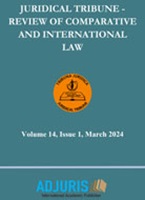Standards of Disciplinary Conduct for the Corporate Directors: Perspective of the United States of America
Standards of Disciplinary Conduct for the Corporate Directors: Perspective of the United States of America
Author(s): Erjola Aliaj, Edvana TiriSubject(s): Business Economy / Management, Management and complex organizations, Law on Economics, Socio-Economic Research, Sociology of Law
Published by: Societatea de Stiinte Juridice si Administrative
Keywords: director; corporation; disciplinary conduct; standards; USA;
Summary/Abstract: Administration of corporate activity is the daily preoccupation of corporate directors. Delegation of decision-making to the director, who is an independent player within the company, can clearly create the risk of conflicting his interests with the interests of the shareholders. This potential conflict of interests is a consequence of the division of ownership of the company and the control powers of the company's commercial activity. The delegation of decision-making authority to the directors of the company may cause the risk of the temptation of the director to the assets of the company. In addition, directors may also be tempted by opportunities for profit that arise during the exercise of their function, instead of using these opportunities for the company. For this reason, it is necessary to foresee clear disciplinary parameters, to avoid and eliminate the conflict of interest, as well as the prohibition of competition. In the present paper, through a legal assessment, special attention has been paid to the main categories of standards: elimination of conflict of interest and prohibition of competition. The main aim of this paper is to analyze the US doctrine, legal provisions, which regulate the two standards of disciplinary conduct for the corporate directors, as well as the court practice in this regard. Also, an important objective of this paper is that it may serve as an important basis for further comparative studies in this field with other jurisdictions. Such analysis is based on the qualitative method, which contains also the research, analytical, descriptive, interpretive methods. The result of this paper will stimulate debate in the academic level and contribute to further improvements of our company legislation, as well to the legal doctrine in Albania that lacks such.
Journal: Juridical Tribune - Review of Comparative and International Law
- Issue Year: 14/2024
- Issue No: 1
- Page Range: 147-154
- Page Count: 8
- Language: English

